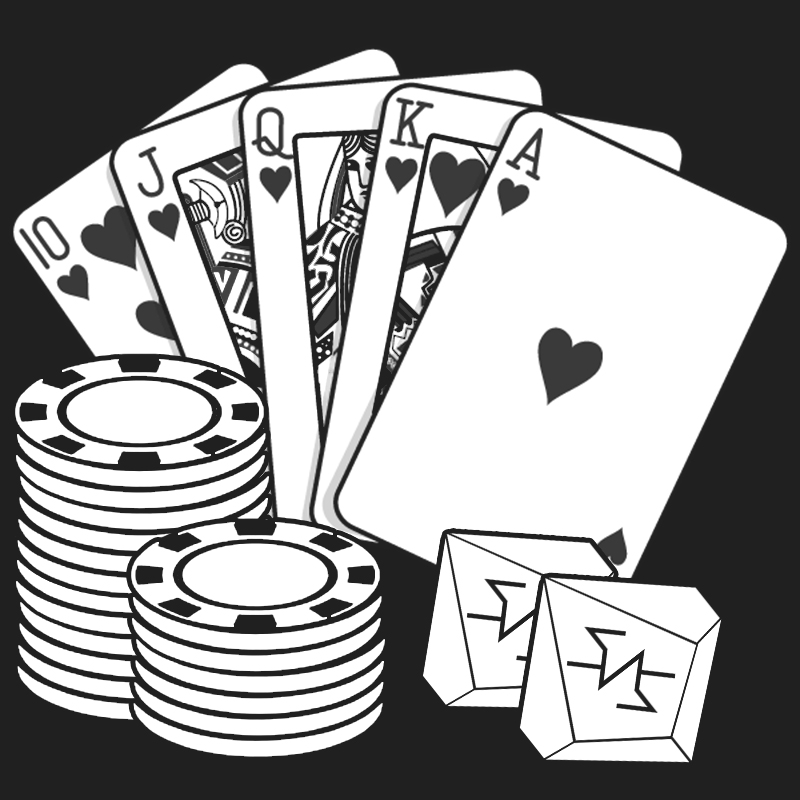
Last time on our Casino Games series, we showed you how to play Blackjack with d10s.
This time we talk about the most famous casino game of them all: Poker
d10 Poker
Many people are familiar with dice poker played with d6s, and for those, this works the same way but just using d10s instead.
For those not in the know, here’s how dice poker works:
Everyone who’s playing needs 5 d10s, and this will be your “hand” for the game. First part of the game is the opening bet where the money can do the talking. Starting on the left of the dealer, everyone gets their chance to “fold” (stop playing for the round) or bet. After the first round of betting has been done, everyone rolls their d10s.
After this, there is the second and final round of betting. Anyone who remains will have the chance to reroll 1 to all 5 of their d10s to make their final hand. Whoever has the best hand takes the pot.
Poker hands
A dice poker hand is made of a combination of numbers, with some combinations being better than others. What you want to do is get the best combination to win.
The combinations below go from best to worst:
- Five of a kind: all five d10s showing the same value
- Four of a kind: four out of five d10s having the same value
- Full house: Three d10sshowing the same value, and the other two showing a same value.
- Straight: a run of five sequential numbers. (eg: 1,2,3,4,5) The best Straight is a 6,7,8,9,10)
- Three of a kind: three d10s showing the same value
- Two pairs: two pairs of d10s showing the same value
- Single pair: two d10s showing the same value
Not all types of hands are of course equal. One “Five of a kind” can beat another, by having higher values on the d10s. For example: 5d10s showing all 9s will beat 5d10 showing all 4s.
The Bluff
Playing dice poker against other players necessarily means that everyone can see everyone else’s dice, and that’s why the final round of betting above takes place before the final reroll.
If, however, you play against NPCs, you can use slightly different rules.
Instead of rolling outright, every character playing this hand rolls a d100. This counts as your Deceive Skill Check. Whomever fails the Skill Check rolls their dice for everyone to see. Then the first round of betting happens.
Every character left standing either gets their chance to reroll (if they failed their previous Deceive Skill Check) or they roll another Deceive Skill Check. The next and final round of betting then happens.
If it comes to a standstill in the betting, if anyone betting still haven’t rolled their dice, they do so now. Everyone still gets a chance at a reroll, and after all the rolling is done, whoever has the best hand gets to leave with all the money.
Betting
Betting in the Sigil System works by using “points” of your character’s Wealth Skill Level. If you win, you gain a bonus to your Wealth Skill Check equal to the amount of points you’ve won until such a time as your GM decides you have used up all of your winnings (at least for 1 session). Similarly, you won’t lose any levels in your Wealth Skill if you lose a bet, but you will take a penalty to any Wealth Skill Checks equal to the amount of points your lost.
You can bet as many points of Wealth up to your character’s Wealth Skill Level plus any points you have already won. Other characters can “spot” you some money by taking a penalty to their Wealth Skill Checks, and you will gain some “points” to bet with.

One Response